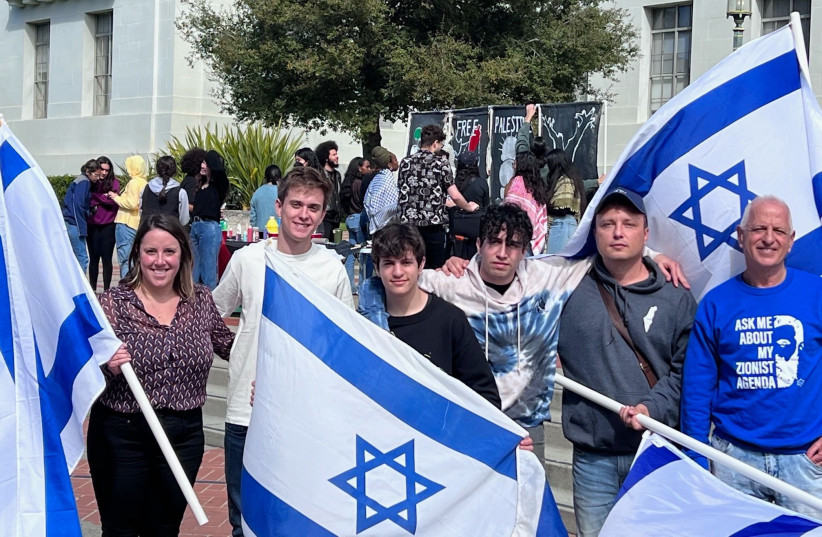“Jews are talking about ‘do you have a passport?’ ‘Are you armed?’ People are actually having these conversations,” Shoshana Stein Benarroch told USA Today. Benarroch is 43 and runs the TikTok account @mysocalledjewishlife. Her kosher cooking videos have been inundated with hate comments since the Israel war with Hamas broke out on October 7.
Amid an unprecedented rise in antisemitism in the United States, USA Today interviewed members of the Jewish community in each state to learn how antisemitism is manifesting itself across the country.
The USA Today report begins with Alabama, where in Montgomery alone, there were six incidents of bomb threats against six of the seven synagogues in the area.
Although Alaska is generally off the beaten path for most, “We have a very emotional group of people who are very intensely pro-Palestinian, and they don’t care if they are coming off as antisemitic or not,” Rabbi Abram Goodstein of Anchorage told USA Today. He also shared that within his synagogue, there is a divide where there is fear over everything happening, but also many in his community do not like what Israel is doing either.
Antisemitism at universities
California paints a bleak picture in the report, where respondents highlighted Berkeley and Los Angeles as hotspots of antisemitism. “The violence is increasing, because along with the verbal violence has come physical violence,” long-time resident Dorothea Dorenz told USA Today.

Mayim Bialik said that in Los Angeles there’s been a divide in groups that had previously seemed politically aligned. “The difference between a Jewish liberal progressive, I did not think was very far from a non-Jewish liberal progressive,” however she says now in Los Angeles, “it feels like lines are being drawn in really scary ways.”
At the University of Colorado at Denver in March, flyers were distributed that featured a QR code linking to a Hamas military pamphlet.
A significant number of concerns expressed throughout the states are regarding activity at Universities. There were also several states where antisemitic incidents were not mentioned, however more people were showing their Jewish identity proudly, including in Delaware and Florida.
In Chicago, Illinois, Dan Goldwin said that he’s now used to seeing a “constant parade” of war-related signs in his neighborhood “just slamming Israel. It’s veiled antisemitism and not-so-veiled antisemitism,” he told USA Today.
Further down in the list of states, more severe cases of antisemitism are highlighted in New York and in Pennsylvania. Of Philadelphia, Pennsylvania, Hannah Geller says since October 7, “the hostility in the city is palpable and almost stings with intensity. I'm reconsidering more and more each day why I'm here.”
Throughout the respondents, across the states in America, one similarity is that many of the Jewish institutions have increased their security spending since October 7. Jewish residents of many states are combatting both antisemitism from the pro-palestinian movement, as well as antisemitism from white supremacists.
Overall, the report shows an alarming trend of insecurity and feelings of isolation among Jews across the United States.
